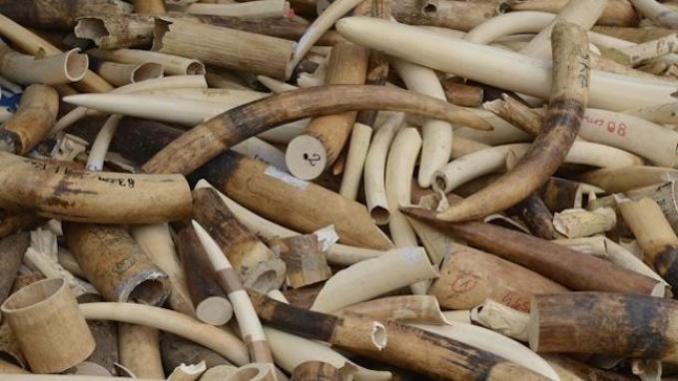The Ivory curse: How Africa’s giants are falling to greed
For residents of Karuma, a village near Murchison Falls National Park, the decline in elephant populations is not just a distant environmental issue, it's personal.

In Uganda’s vast national parks, a silent war is being waged. Not with tanks or guns, but with greed and bullets aimed at one of the planet’s most majestic creatures the African elephant.
The driving force behind this bloodshed? Ivory. These gleaming tusks, carved into symbols of status and wealth, have become a death sentence for thousands of elephants across Africa.
For residents of Karuma, a village near Murchison Falls National Park, the decline in elephant populations is not just a distant environmental issue, it’s personal.
“I grew up hearing elephants trumpeting in the forests,” recalls 58-year-old farmer Musa Kayondo. “Now, it’s rare to see one. Our forests are becoming silent.”
Kayondo blames poachers, who infiltrate the park, kill elephants, and smuggle ivory across borders. “We hear gunshots at night,” he adds. “Sometimes we find dead elephants with their tusks missing.”
Kayondo’s concerns are echoed by many villagers who once relied on eco-tourism for their livelihoods. With fewer elephants, tourists are staying away, and local economies are suffering.
For rangers like Lydia Namatovu, protecting Uganda’s elephants is a job fraught with danger. Stationed at Queen Elizabeth National Park, Namatovu has witnessed firsthand the brutal reality of poaching.
“Poachers are well-armed and desperate,” she says. “We’ve lost colleagues in ambushes and shootouts.”
Namatovu recalls a recent incident where rangers intercepted a poaching gang carrying poisoned arrows. “They didn’t care about the law. All they saw was money,” she says. “Every elephant tusk is worth a fortune on the black market.”
Despite the risks, Namatovu remains committed to her mission. “It’s not just about saving elephants. It’s about protecting our heritage and the future of our children,” she says.
In a surprising twist, former poacher John Bukenya has become a vocal advocate for elephant conservation.
“I was part of the problem,” admits Bukenya, who once hunted elephants for ivory. “I did it because it paid well. But I didn’t think about the consequences.”
Bukenya’s perspective changed after attending a community workshop organized by the Uganda Wildlife Authority (UWA). “They showed us how elephants help the environment—spreading seeds, creating waterholes, keeping the ecosystem alive,” he explains.
Now, Bukenya works with UWA to educate others about the importance of conservation. “We can’t destroy what we depend on,” he says. “There are better ways to make a living.”
While local efforts are essential, the root of the problem lies beyond Uganda’s borders, according to wildlife analyst Dr. Josephine Namara from the East African Conservation Alliance.
“The ivory trade is driven by international demand, primarily from Asia,” Dr. Namara explains. “As long as ivory is seen as a status symbol, poachers will find a way to supply it.”
Dr. Namara advocates for stricter international regulations and increased collaboration between countries to dismantle ivory smuggling networks. “We need to cut off demand at the source,” she argues. “And that requires global cooperation.”
She also highlights the importance of community involvement. “When local communities benefit from conservation, they become the first line of defense against poaching,” she says. “Tourism, alternative livelihoods, and education are key.”
Despite the grim statistics, there is hope. Conservation programs, increased ranger patrols, and international bans on ivory sales are starting to make a difference.
Tourism remains a beacon of hope. Visitors who come to see Uganda’s elephants contribute to conservation efforts and provide income for local communities. “Each tourist is a vote for conservation,” says Dr. Namara.
As Uganda fights to save its elephants, the battle is far from over. But with the voices of people like Kayondo, Namatovu, Bukenya, and Dr. Namara, there is a growing chorus demanding action.







